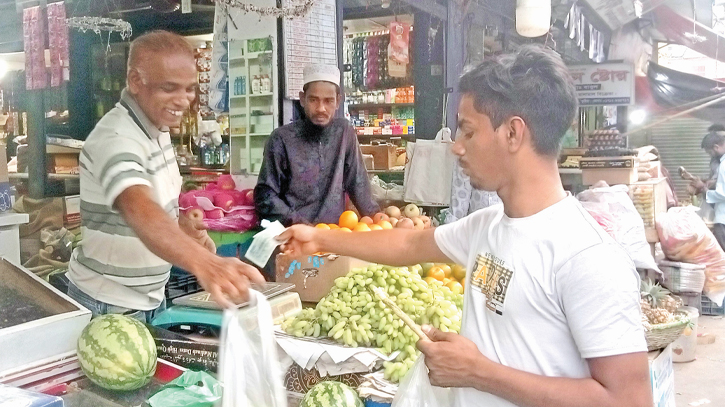
Photo: Messenger
The commencement of fasting this year has brought with it an unexpected rise in the price of watermelon. Over just three days, the cost of unripe watermelon has surged by Tk 25 to Tk 30 per kg, reaching a staggering Tk 80 per kg in retail markets. This abrupt increase contrasts starkly with prices just days ago, which lingered between Tk 50-55.
Watermelon holds a cherished place on Iftar tables, enjoyed by individuals across all societal strata. However, the sudden inflation has rendered it unattainable for many lower and middle-class families. Consumers, understandably outraged by this unwarranted spike, are clamoring for heightened market oversight to curb exploitation by unscrupulous vendors.
On Wednesday (March 13), dismayed buyers congregated in the Kushtia Municipal Market, echoing sentiments of frustration and financial strain. Farooq Hossain, a student, lamented, "I came to purchase watermelon for Iftar, but at Tk 80 per kg, it's beyond my budget. The disparity in prices during Ramadan is disheartening. Market regulation is imperative to alleviate the plight of the marginalized."
Bablu Mia, another buyer, shared his dismay, revealing, "I've never encountered such exorbitant prices for watermelon. Despite its unripeness, I had to purchase it for Iftar, considering everyone at home is fasting. The impunity of dishonest traders exacerbates our struggles."
Omar Farooq recounted a similar tale of disappointment, having purchased a watermelon at an inflated rate only to find it unripe upon cutting. "We're being swindled," he declared, underscoring the need for punitive action against deceitful merchants.
Despite efforts to seek clarification from the National Consumer Rights Protection Directorate, their silence speaks volumes. Suchandan Mondal, the assistant director, remains elusive, leaving consumers to grapple with unregulated markets and predatory pricing practices.
In light of the pervasive grievances voiced by consumers, urgent intervention from regulatory bodies is imperative. The government must assert control over markets to safeguard the interests of its citizens, particularly those belonging to the lower echelons of society. Failure to address these concerns risks exacerbating financial hardships and eroding public trust in market mechanisms.
Messenger/Sajib








